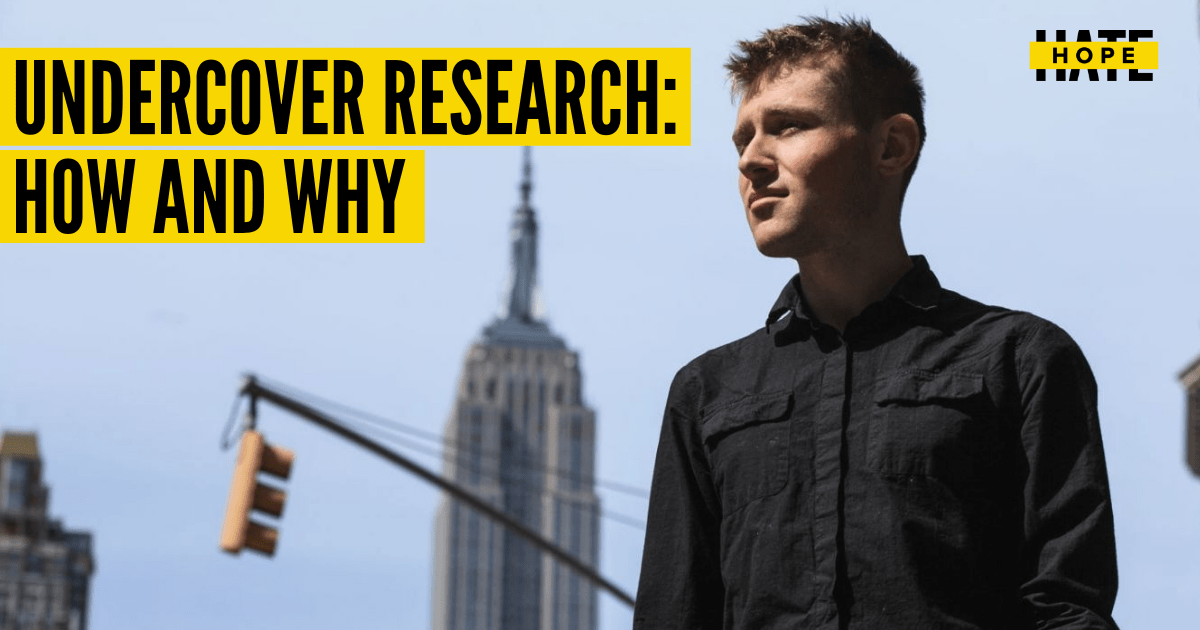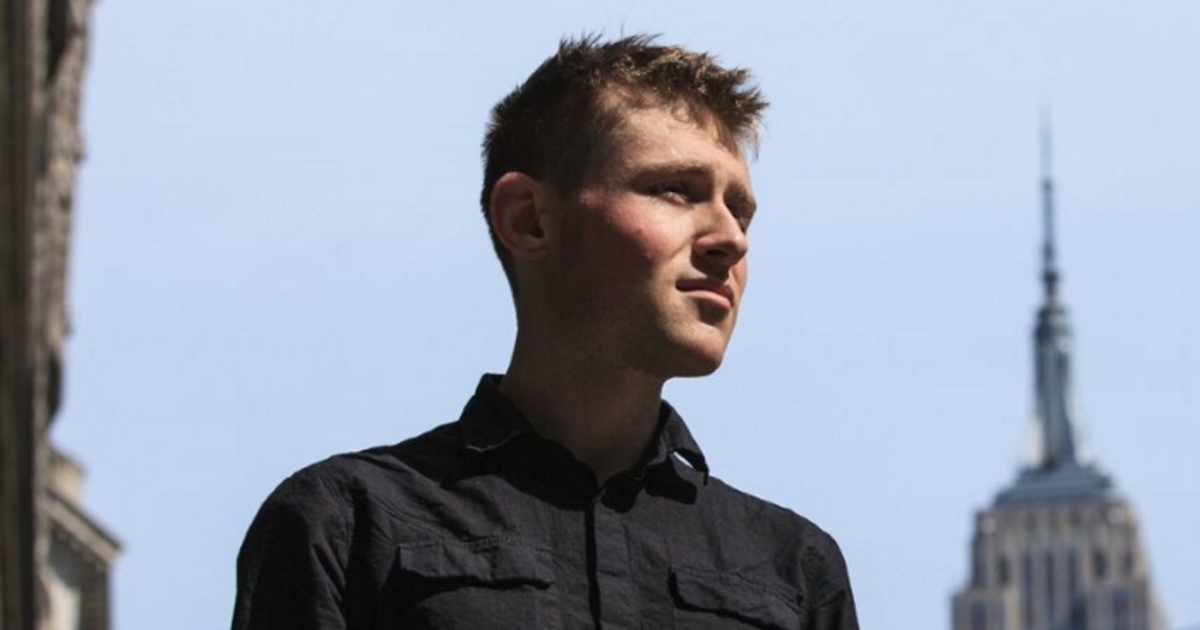HOPE not hate uses cookies to collect information and give you a more personalised experience on our site. You can find more information in our privacy policy. To agree to this, please click accept.
The nazi plot to kill Rosie Cooper MP ended up in the Old Bailey rather than somewhere darker due to the actions of former National…

The nazi plot to kill Rosie Cooper MP ended up in the Old Bailey rather than somewhere darker due to the actions of former National Action (NA) member turned HOPE not hate informant, Robbie Mullen. Thanks to Robbie, when the plot became apparent HOPE not hate was able to warn of the threat to Rosie’s life. Moreover, members of the terrorist group have faced justice, thanks to Robbie.
Today, HOPE not hate’s intelligence work is under heavy scrutiny. But cases like Mullen’s represent a fraction of the information we gather on the far-right – most of it never reaching the public eye.
“At any one time we might be receiving information from as many as 20 people inside far-right groups,” says Nick Lowles. “Some are ours, committed anti-fascists who have gone in to deliberately gather information. But most are walk-ins, people who approached us after becoming disillusioned with the far right and who now want to make amends.”
Information gathering is an integral part of HOPE not hate’s research on the far right. It necessitates not only gathering surface information, but also understanding the key drivers, motivations and tactics of people in such organisations.
According to Duncan Cahill, a researcher at HOPE not hate, undercover work helps unveil the mechanisms, operating procedures and power structures in a movement. The higher up in an organisation an informant reaches, the more of this information can be scrutinised.
“This has been especially important for us, to know where far-right parties are planning to target before elections, which allows us to ramp up counter campaigns in those communities before the far-right campaign is announced publicly,” says Duncan.
Remaining a step ahead allows HOPE not hate to be proactive rather than merely reactive to the far right in Britain and abroad, not only with respect to election campaigns, but also in working to build more resilience in communities vulnerable to adopting far-right ideas.
Undercover work is also a tool used to reveal the true nature of far-right movements and political parties. There is body of research highlighting how extreme groups portray themselves publicly in a more moderate fashion, obfuscating their core beliefs.
If HOPE not hate merely took into account public information, they would only hear about events after they could do anything meaningful about it – they would never be in a position to expose the true ideology at the heart of these movements.
“The British National Party at its peak was publicly way more moderate than say the 200 people at its core who were fundamentally antisemitic and violent,” says Duncan. “So if part of our message is that these groups are more extreme than they say they are, we have to have evidence.”
One HOPE not hate exposé has been of the far-right party, the For Britain Movement. Whilst For Britain does not publicly espouse openly racist views, HOPE not hate’s intelligence work has found members and candidates engaging in appalling racism, and others who are former activists of the British National Party, and even former members of NA.

An advantageous side effect of undercover work has always been the schisms and internal divisions created in the far right due to their suspicion and paranoia of HOPE not hate infiltration.
“It reduces their capabilities to do anything as they spend so much time running around in circles, trying to find the source, trying to find the mole”, says Duncan.
“Creating the climate of paranoia and suspicion is clearly a key part of our work,” adds Nick. “The far right is a very paranoid world and it is often not difficult to get leading members blaming each other when internal information appears in the public.”

HOPE not hate has used a wide variety of undercover informants in groups and informants fall into two broad groups: those who are recruited specifically to infiltrate a far-right group and those turned from within the organisation.
In 2017, Patrik Hermansson went undercover in the alt-right for a year under HOPE not hate’s guidance. He reported on the key players in the movement both in the US and the UK while he infiltrated the London Forum – an important hub for international far-right speakers before Patrik’s infiltration crippled its reputation.
“The aim was to split Stead Steadman, the ‘power behind the throne’ in the London Forum, from Jez Turner, the front man,” according to a member of our research team. “We also wanted to stop the London Forum from being a hub for the international far right, understand how the alt-right functions in America and create division between them and the UK far right – all of which happened. Through the London Forum we also managed to photograph Greg Johnson, an important American white nationalist who had never been seen on camera. Our work stopped London from being a safe operating space for the international far right.”

Patrik is now a researcher for HOPE not hate but not all informants are anti-fascist activists. Those recruited from within turn on far-right organisations for a range of reasons; it is the researcher’s job to identify people with potential motivations to feed intelligence to HOPE not hate.
“Some people are increasingly disillusioned from within or worried about the direction the group is heading in. Like Mullen in National Action – he disliked the direction and wanted to get out, so he decided to do something about it,” according to Cahill.
Matthew Collins, Head of Intelligence at HOPE not hate, is another person who left the far right, worried by the violence. Joining the National Front (NF) as a teenager, Matthew was a far-right activist who rose quickly through the NF ranks and then on to recruitment by Combat 18 (C18) and even the fringes of the Loyalist paramilitary group, the Ulster Defence Association. However, surrounded by extreme violence, he began to be repulsed by what he saw in the far right and approached the anti-fascist organisation Searchlight wanting to make amends. For the next few years he began passing information out of the very heart of Britain’s far right.
Another high profile recruit was Darren Wells, one of the leaders of nazi terror group C18. “Darren passed information over to me for almost five years,” says Nick, “during which time we stopped two bombing campaigns, prevented a C18 plot to spark a riot at an England vs Pakistan test match at Old Trafford just a fortnight after the Oldham riots, and exposed attempts by Loyalist murderer Stevie Irwin, who was responsible for the Graysteel bomb shootings which left six Catholics dead, to link up with C18.”
The likes of Robbie Mullen, Matthew Collins and Darren Wells are the rare exceptions. “The vast majority of our informants never come out,” Nick adds. “Most quietly retire without any great fanfare. On one occasion, back in 1999, one of our informants gave up a share of the £70,000 reward money for the arrest of the London nailbomber, David Copeland. It was one of our long-running informants who identified Copeland from the TV images and we were the first to make a far-right link. But our source was not interested in the money or the limelight. He was a committed anti-fascist who had read a story about an anti-fascist mole in the 1980s and decided to do the same. He was undercover for the best part of 10 years and to this day has never been exposed.”

“It’s all about relationships, where you trust them and they trust you. You spend a lot of time with them, they’re your asset and you’re their handler. It’s a lot of evenings, a lot of weekends, you can’t ever turn off your phone because if anything happens to them, you’re responsible,” says Lowles.
The nature of the group a researcher is responsible for determines how dangerous the undercover work might be. Matthew, who was responsible for monitoring NA has to be extremely cautious. After all, NA is an officially designated terrorist group, and Matthew knew from the inside information he had just how dangerous this group was.
However, most of the information uncovered by undercover work is never published. The data collected allows HOPE not hate researchers to analyse and understand extreme groups. It helps them figure out what they are doing and what they are planning next.
“After the Oldham riots in 2001 we knew the far right would make a concerted effort to make political gains in the former mill town and so we made it our national priority,” reflects Nick. “Over the next few months we put three people inside Oldham BNP and as a result we knew everything they were up to. We were able to reveal how the men who were later jailed for – in the words of the judge – ‘triggering’ the Oldham riots were active BNP members. We had access to their election plans and even canvass returns so we were able to respond accordingly. And – probably most significantly of all – we were able to expose their deputy organiser as a convicted armed robber and gang rapist just three weeks before the election”.
As with every HOPE not hate infiltration, the undercover work in Oldham had a clear goal: to stop the far right achieving their goals.
Want to support HOPE not hate’s intelligence work? Make a donation here: